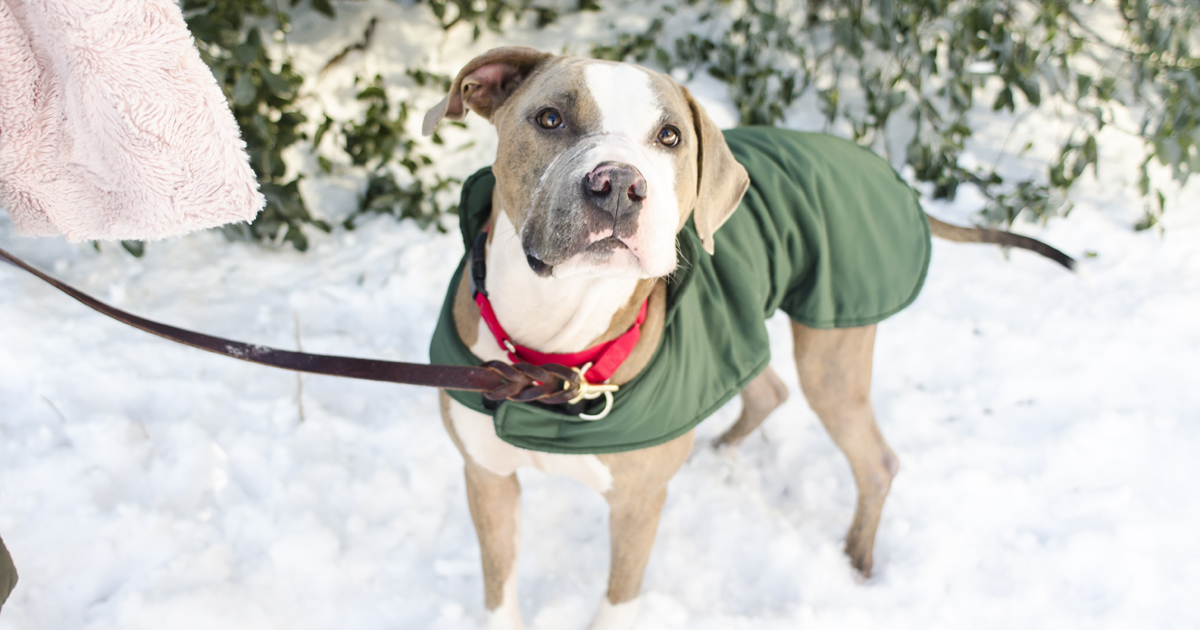As the winter months set in and temperatures drop, it’s important to ensure your pets are safe, warm, and comfortable. Dogs and cats are vulnerable to the challenges posed by cold weather, and owners need to take proactive steps to protect their furry companions. From keeping them warm to ensuring proper nutrition, here are some practical tips to prioritize the well-being of your pets this winter.
1. Provide Adequate Shelter
Whether your pet is indoors most of the time or outdoors, proper sheltering is important. Indoors, provide a warm area away from drafts and cold floors with some blankets or a pet bed. Outdoor pets need shelter that is insulated and off the ground with straw or bedding inside the shelter to help keep them warm. Always cover the entrance to the shelter to block wind and snow.
No pet should be left outside in extreme cold for extended periods. Hypothermia and frostbite are serious risks, especially for short-haired breeds, senior pets, or animals with medical conditions.
2. Bundle Them Up
Dogs do well in a sweater or coat when going for walks, especially if they are of short coats or small body frames. It gives added insulation against cold, but make sure the clothes fit their dimensions without much restraint on their movement and breathing. As for cats, they usually prefer being indoors most of the time during winter, but if they need to go outside, keep them monitored closely while exposed briefly.
3. Protect Your Pet’s Paws from Cold and Chemicals
Snow, ice, and de-icing chemicals can be pretty rough on your pet’s paws. Salt and antifreeze can cause skin irritation, and if they are licked off, can be toxic. Try using pet-safe booties to shield their paws during walks. If your pet isn’t comfortable wearing booties, make sure to wipe down the paws after coming inside with a warm damp cloth to remove salt and ice. Check regularly for cracks or redness on their paw pads and apply a pet-safe balm if needed. —
4. Watch Out for Toxic Winter Hazards
Antifreeze, although necessary for your vehicle, is extremely poisonous to pets. Its sweet flavor might attract dogs and cats to taste it, but a small amount may lead to acute kidney failure or death. Immediately clean up spills and store it safely.
On the same note, prevent your pet from consuming snow because it may contain toxic materials, including salt used on the roads.
5. Nutrition and Hydration: Keep them Properly Managed
Cold weather increases the need for calories in your pet, as they have to burn more energy to maintain body heat. Ask your veterinarian how to adjust their diet according to their activity level and winter needs.
Hydration is equally important; pets can become dehydrated just as easily in winter as in summer. Make sure your pet has access to fresh, unfrozen water at all times. For outdoor animals, use heated bowls to prevent water from freezing.
6. Exercise Safely
Exercise is very important for your pet’s health, both physical and mental, during winter. Adjust the duration and intensity of outdoor activities based on the weather conditions. If it’s too cold or snowy outside, then indoor games like fetch or puzzle toys can be considered to keep your pet engaged.
For those that do venture outdoors, limit the amount of time they spend out in the cold. Smaller or short-haired breeds and senior pets should have shorter outings to avoid overexposure.
7. Groom for the Season
A well-groomed coat is very important because of insulation. Regular brushing will prevent matting, which decreases the trapping of heat in the coat. Avoid shaving your pet’s fur too short during winter because that certainly reduces their natural protections against the cold.
However, be aware that wet or snow-covered fur can lower the animal’s body temperature rapidly. Therefore, dry your pet off thoroughly after being outside.
8. Be Mindful of Senior Pets and Special Needs
Older animals and those with arthritis may be more uncomfortable in old weather. Give them orthopedic beds, keep them warm, and ask your veterinarian for suggestions on how to alleviate arthritis-related pain during the colder months.
Pets with specific health issues, such as heart or kidney disease, are more susceptible to cold temperatures. Keep a close watch on their actions and well-being at all times.
9. Don’t Leave Pets in Cars
So while many people know of the risks with leaving pets in hot cars, cold cars can be just as dangerous. In a parked car, the temperature can fall very rapidly and can put your pet at risk of hypothermia.
Winter pet safety is all about preparation and awareness. By following these few basic tips, you can help keep your animals safe, healthy, and happy during the cold months. After all, pets depend on us for their protection, and their comfort and well-being are a reflection of love and care given to them.





